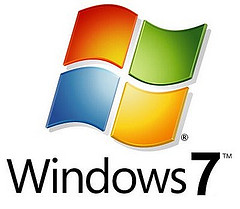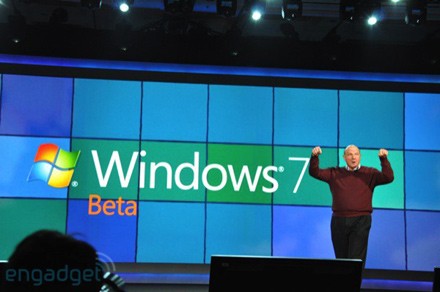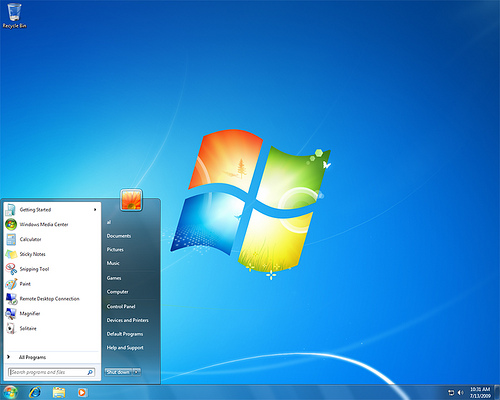 Thursday will mark a new dawn for Microsoft’s cash cow, the Windows operating system (OS), with the worldwide launch of its seventh edition. Simply called Windows 7, it is a huge step forward for the software giant trying to exorcise the ghost of Vista — the sixth Windows version.
Thursday will mark a new dawn for Microsoft’s cash cow, the Windows operating system (OS), with the worldwide launch of its seventh edition. Simply called Windows 7, it is a huge step forward for the software giant trying to exorcise the ghost of Vista — the sixth Windows version.
An OS is the master software in a computer, on top of which other applications like word processing and games can run. So for Macintosh computers it is Mac OS X while for PCs it is mainly Microsoft’s Windows. Every computer needs an OS, and since about nine out of 10 personal computers are running on Windows, Microsoft’s business strategy for the last 20 years has been the same: release a new version of Windows every two to three years and get users to pay for the upgrade.


But Vista failed to garner the industry support that Microsoft had hoped for. It was launched in January 2007 with an aesthetically superior interface and arguably better security than Windows XP — the fifth Windows OS released six years earlier, in 2001.
The problem was this: Microsoft was trying to fix what was essentially not broken. Windows XP was, and is — unless Windows 7 upstages it — the most successful Windows of all time. It was fast, stable and worked well with applications. Microsoft clearly needed to turn up the heat to get XP-loving consumers and businesses to take up the upgrade. It sold Vista on looks. It sold Vista on features. It threw millions of dollars in marketing campaigns. But Vista was slower than XP, less stable and had compatibility problems with hardware like printers and scanners at the time of the launch, for many vendors had not yet written the software drivers for Vista. Consumers experienced a mess-up.
In one pre-launch campaign, they were told that computers with the Windows Vista Capable logo meant that these models could be upgraded to the new OS when it was released. But they later found that not all the PCs had enough processing power to run Vista’s high-end graphical features, and a class action lawsuit ensued in the United States. That lawsuit lost its ‘class’ status earlier this year but the judge did not dismiss the case. That means the individual consumer can still sue in his or her own name. A report by web metrics firm Net Applications earlier this month stated that Windows XP account for three-quarters of all existing Windows PCs. Vista has clearly failed, and Microsoft is hoping Windows 7 is the remedy.
It clearly needs the financial boost. Its revenue for the fourth quarter of the 2009 fiscal year — which ended June 30 — was down by 17 per cent year-on-year. But what of Windows 7? Well, it is based on the same core foundation as the Vista and even looks a lot like it, but it is a lot more stable and faster. Plus, the drivers which worked on Vista are very likely to work on the new OS as well, alleviating the problem of incompatible hardware when users upgrade to the new Windows. In short, Windows 7 is what Vista should have been.
Early tech reviews around the world for Windows 7 have been positive and there is a good chance many individual consumers will feel the same. But Microsoft will find it more challenging with businesses, which favour stability and convenience over cool looks and features. Microsoft has stopped selling Windows XP since January this year, with the exception of netbooks where you can still find it pre-installed. For new PC purchases, however, where the choice is between Vista and Windows 7, the question is moot as to which consumers will go for: obviously, the latter.
It is the in-between camp — existing customers of XP — who would probably need the most convincing. That is because Microsoft will continue to support XP with free security patches until April 2014. So satisfied Windows XP users can stick to this OS for another four years or until their machines break down. Microsoft had tried to persuade PC users to switch to Vista when it launched it by aggressively pushing Vista-only games like Halo 2 and Shadowrun. This failed to gain any significant traction and the strategy was soon abandoned.
Microsoft is also unlikely to attempt to make another ‘works on my new OS only’ push in the near future, not with rival Google snapping at its heels with its promise of a new rich array of Web-based applications, which will work on browsers, and therefore on any OS the computer runs on. This means that new applications over the next few years will, in al likelihood, be able to run on XP as well as the Vista/Windows 7 platforms.
In other words, Windows XP still ain’t broken.
Article written by Oo Gin Lee – The Straits Times